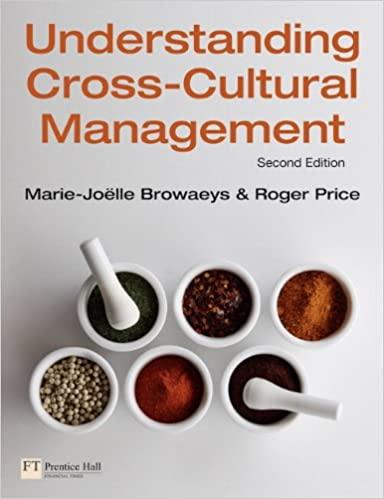How does an Indian family business differ from the other family types in Asia? Refer to Concept
Question:
How does an Indian family business differ from the other family types in Asia? Refer to Concept 4.1. Read the following case study about Asian family businesses and then answer the questions.
A new generation of family firm By Louise Lucas All happy families are the same, to paraphrase Leo Tolstoy. But even unhappy ones are not bad for business.
A ‘family index’ produced by Credit Suisse shows that companies in which the founding family has a stake of 10 per cent or more are good for shareholders’ wealth. According to analysts at the Swiss bank, European stocks with a significant family influence have outperformed their respective sectors by an average 8 per cent a year over the past decade.
The US experience is similar. Small wonder that several US companies, including the retailer Gap, are going back to their family roots, five decades or so after the model was nudged aside in favour of public ownership.
Asia, of course, never gave up on family businesses. Mainland entities aside, family-owned companies dominate Hong Kong’s Hang Seng Index. South Korea’s corporate dynasties are flourishing, even after those pesky scandals. The Lee family has tightened its grip on the Samsung group by elevating the son of chairman Lee Kun-hee. And Chung Mong-koo ‘retains full operational control and decision-making authority for longterm strategic issues affecting Hyundai Motor,’ the carmaker says – in spite of being handed a three-year prison sentence for embezzlement.
Dynasties proliferate across south-east Asia: the Malaysian Kuoks, whose interests span hotels and media;
Indonesia’s Salims in noodles; and the same country’s Bakries in mining and telecoms. Taiwan has the Wangs, of Formosa Plastics fame, and the Koos, its oldest business dynasty, now in a spot of bother over the antics of heir apparent Jeffrey Koo junior. Even Singapore, whose corporate landscape is partly in government hands, has family empires.
Step by Step Answer:

Understanding Cross Cultural Management
ISBN: 9780273732952
2nd Edition
Authors: Marie Joelle Browaeys, Roger Price





